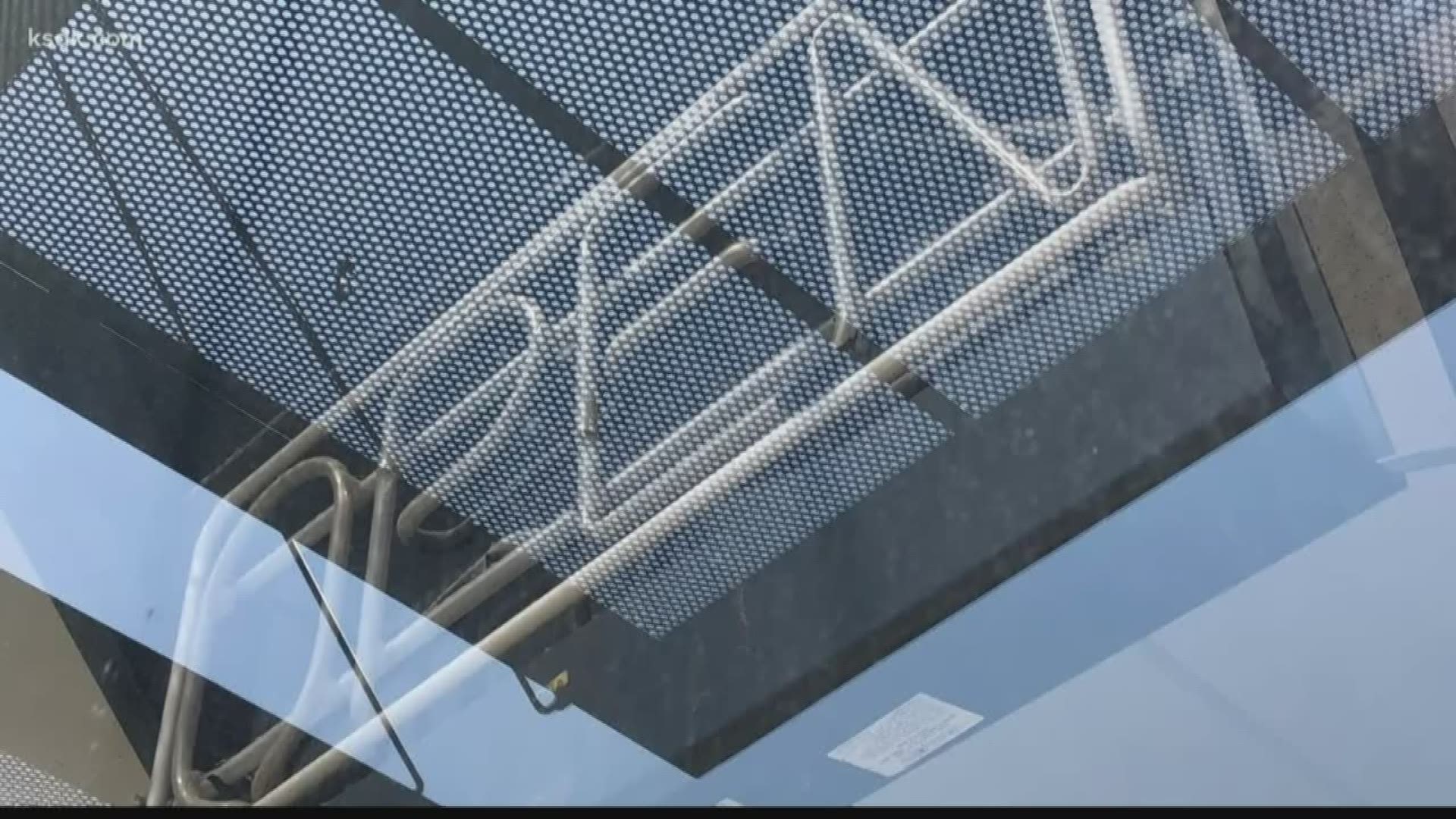CLAYTON, Mo. — An "open" sign hanging in a store-front window near St. Louis County Police Headquarters has long lost its neon glow.
On March 23, non-essential businesses shut their doors to the public, but area leaders worry not everyone is following the mandate.
"Businesses not complying with the Essential Business portion of the Stay-at-Home Order can expect enforcement action to begin in the near future," Sgt. Benjamin Granda warned in a Wednesday news release.
Granda said residents can report violators online, as counterparts in the City of St. Louis made the same request.
"The fact that the public does not seem to be taking it as seriously as the medical world is taking it, is -- I think -- a little concerning to me," Dr. Jean Wagner, a pediatrician, said.
5 On Your Side caught up with Dr. Wagner after one of her private posts on social media got a lot of attention, with hundreds of reactions.
She said her office -- and essential business -- is incorporating more telemedicine and keeping patients separated, but she others aren't taking the necessary precautions
"I generally think on most social media posts, you try to not start anything, make people upset. But I think people need to realize that we are upset," Wagner said. "Doctors are upset. Nurses are upset. They're angry and they're scared."
In St. Louis city, leaders issued summonses for two churches this week after they continued holding services in violation of the city's 10-person limit.
"Please, please listen to your healthcare professionals and know that we are only doing this because we have everybody's best interest in mind, and we are trying to keep the whole community healthy," Wagner said.
St. Louis County Executive Sam Page acknowledged there are scammers posing as officials, calling businesses and telling people to close.
If county leaders think someone is violating the stay-at-home order, the first step is a written notice from the county counselor.
St. Louis County officials list "essential businesses" as:
- Health care operations and essential infrastructure
- Grocery stores, farmers’ markets, farm and produce stands, supermarkets, food banks, and convenience stores. These include stores that sell groceries and also sell other non-grocery products and products necessary to maintain the safety, sanitation, and essential operation of residences
- Food and beverage production, processing, and distribution, including farming, ranching, fishing, dairies, creameries, wineries, and breweries
- Manufacturing companies, distributors, and supply chain companies producing and supplying essential products and services
- Organizations that provide food, shelter, social services, and other necessities to vulnerable individuals
- Gas stations and auto supply, auto repair, and bicycle repair facilities
- Banks, insurance providers, real estate firms, and related financial institutions
- Hardware stores
- Plumbers, electricians, exterminators, landscaping, private security, and others providing services necessary to maintain the safety, sanitation, and operation of residences, essential activities, and essential businesses
- Businesses providing mailing and shipping services, including post office boxes
- Educational institutions—including public and private K-12 schools, colleges, and universities—for purposes of facilitating distance learning or performing essential functions, provided that social distancing of 6 feet per person is maintained to the greatest extent possible
- Schools and other entities that typically provide food services to students or members of the public may continue to do so under this order on the condition that the food is provided to students or members of the public on a pick-up and take-away basis only
- Laundromats, dry cleaners, and laundry service providers
- Restaurants and other facilities that prepare and serve food, but only for drive-thru, delivery, or carry out
- Businesses that supply products needed for people to work from home, including telecom services
- Businesses that supply other essential businesses with the support or supplies necessary to operate, including tech support, signage, and storage
- Businesses that ship or deliver food or goods directly to residences
- Airlines, taxis, rail, and others providing transportation services necessary for essential activities and other purposes expressly authorized in the order
- Home-based care for seniors, adults, or children
- Residential facilities and shelters for seniors, adults, and children
- Businesses that provide pet care, including animal shelters and boarding facilities
- Professional services, such as legal or accounting services, when necessary to assist with legally mandated activities; or to exercise constitutional rights, including but not limited to obligations under any court rule or order and for activities of essential businesses
- Businesses that offer childcare services, but only to the extent that they provide services to people who are necessary employees of essential businesses and government functions, and provided that they take reasonable actions to comply with social distancing conditions
The complete stay-at-home order can be found here.
Contact reporter Sara Machi on Facebook and Twitter.
Latest coronavirus headlines:
- St. Louis Procter & Gamble worker tests positive for coronavirus
- 2 Dierbergs employees at Warson Woods location test positive for COVID-19
- 2 senior facility residents in St. Charles die from COVID-19
- These states have issued stay-at-home orders, here's what that means
- Young mother battling COVID-19: 'I would have not left my house if I knew how miserable this was'

